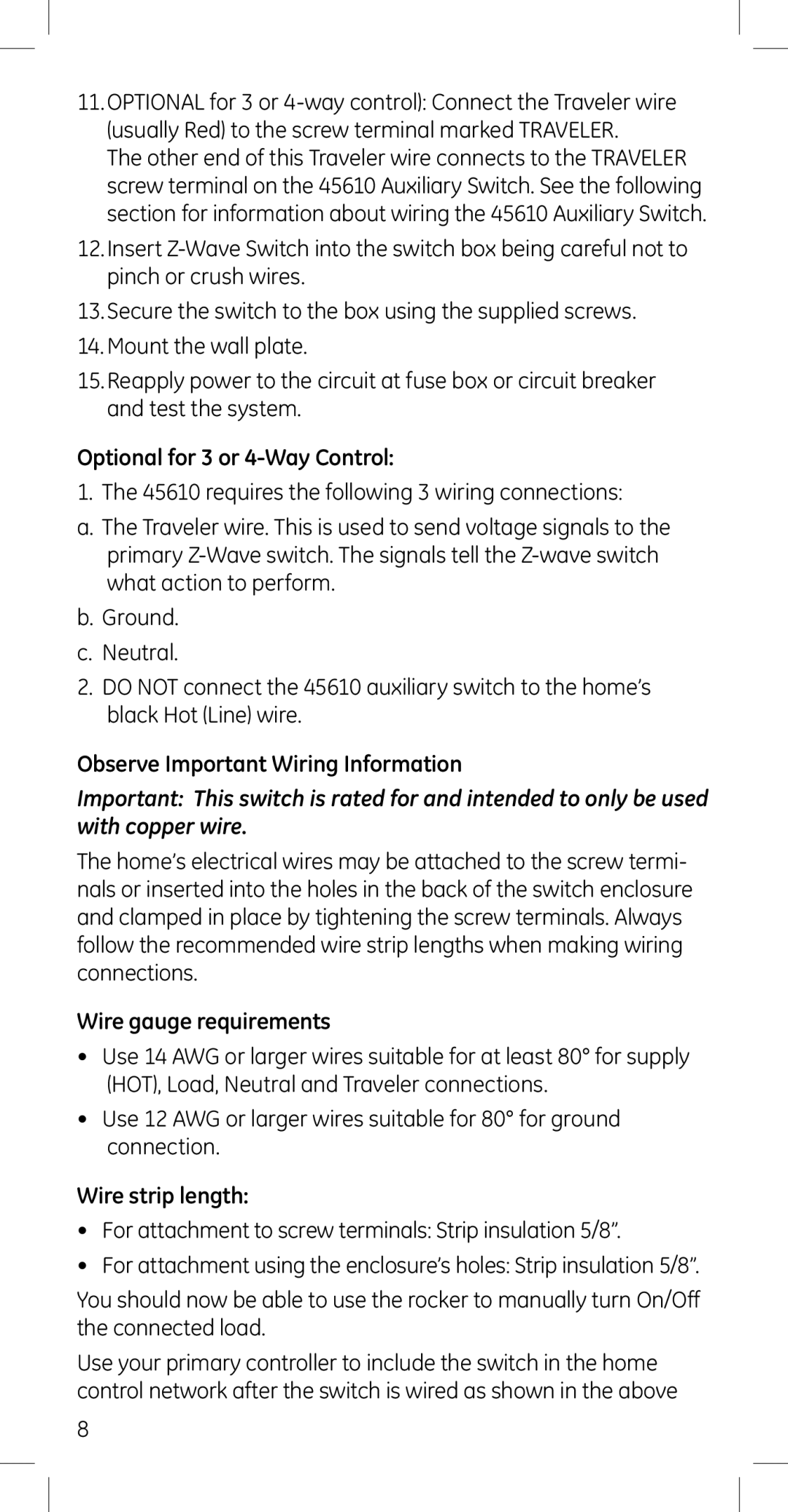
11.OPTIONAL for 3 or
The other end of this Traveler wire connects to the TRAVELER screw terminal on the 45610 Auxiliary Switch. See the following section for information about wiring the 45610 Auxiliary Switch.
12.Insert
13.Secure the switch to the box using the supplied screws.
14.Mount the wall plate.
15.Reapply power to the circuit at fuse box or circuit breaker and test the system.
Optional for 3 or 4-Way Control:
1. The 45610 requires the following 3 wiring connections:
a.The Traveler wire. This is used to send voltage signals to the primary
b.Ground.
c.Neutral.
2.DO NOT connect the 45610 auxiliary switch to the home’s black Hot (Line) wire.
Observe Important Wiring Information
Important: This switch is rated for and intended to only be used with copper wire.
The home’s electrical wires may be attached to the screw termi- nals or inserted into the holes in the back of the switch enclosure and clamped in place by tightening the screw terminals. Always follow the recommended wire strip lengths when making wiring connections.
Wire gauge requirements
•Use 14 AWG or larger wires suitable for at least 80° for supply (HOT), Load, Neutral and Traveler connections.
•Use 12 AWG or larger wires suitable for 80° for ground connection.
Wire strip length:
•For attachment to screw terminals: Strip insulation 5/8”.
•For attachment using the enclosure’s holes: Strip insulation 5/8”.
You should now be able to use the rocker to manually turn On/Off the connected load.
Use your primary controller to include the switch in the home control network after the switch is wired as shown in the above
8
